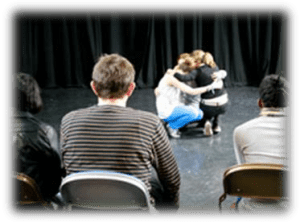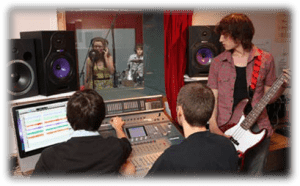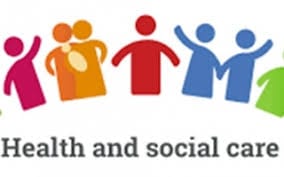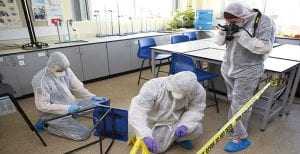What will I study?
Sport has never been more prevalent in the UK than it is today. With the legacy of the London Olympics and the nation becoming more aware of the importance of fitness, opportunities to forge a rewarding and successful career in sport are increasing. The OCR Cambridge Technicals in sport covers a wide range of topics across the whole sporting spectrum in the UK. Compulsory topics enable you to understand and develop your knowledge about the sports industry, economic benefits, job opportunities and the influence of the public, private and voluntary sectors. You will also learn about the social impact of sport in the UK including topics centered around the history of sport, culture, gender, media influence and drugs. Learning and developing sports skills compliments units on coaching and leadership and provide the practical opportunities. The final compulsory unit examines the political shape of sport within the UK through investigation of Central Government, governing bodies, national organizations and provision for elite athletes. These topic areas enable students to build up a wide knowledge base and open up the opportunity for further study at a higher level.
What does it combine with?
The wide ranging nature of the course means that different units will compliment study in a range of other subjects including Psychology, Sociology and Business Studies.
Where can it lead to?
The Level 3 OCR Cambridge Technicals Introductory Diploma offers a variety of future opportunities. For those considering higher education, the UCAS tariff attached to the course opens up the possibility of further study on a variety of sports degree courses. A final exit route for the course is straight to employment within the sports industry in the retail sector, leisure centres, private health clubs or coaching roles.
You might be interested to know…
You will gain two qualifications for the price of one – all students will gain the ‘Level 2 Award in Sports Leadership’ as an additional qualification delivered as part of the coaching units. From September 2016 the Cambridge Technical will contain an examined unit but will remain predominantly portfolio based with external moderation of student coursework. This ensures you know whether you have gained a Pass (equivalent to an ‘E’ at A Level), Merit (‘C’ at A Level) or Distinction (‘A’ at A Level) by May of Year 13. There are numerous opportunities to get involved in leading, planning, organising and delivering sports events to primary school groups. Governing Body ‘Bolt-On’ days enable you to gain additional, sport specific coaching qualifications meaning you could leave with more than two qualifications from this course.
Entry requirements
There is no need to have studied OCR sport but this would be an advantage.
What will I study?
BTEC Performing Arts offers an approach to study dance, drama and music that affirms all three as valid and vital art forms in their own right. It seeks not to replace, but to broaden; to introduce students to a way of working that draws on existing skills & develops them further in a new context. In embarking on the course, students will develop skills in all three art forms, will study a broad range of practitioners, will perform to a range of audiences, and will be equipped to work effectively in a group where the decisions taken affect the outcomes for all the participants.
What does it combine with?
Performing Arts would combine well with a range of other subjects including Media, Art, Business Studies, English Literature, History and/or Sociology
Where can it lead?
Performing Arts students are equipped with skills & knowledge that can be transferred to a range of careers including, acting, drama therapy, theatre in education, law, arts administration, stage management, workshop leadership & teaching. You could also pursue performing arts at university with a degree in dance, drama, music or a combination degree.
You may be interested to know…
You will have the opportunity to go and see a range of professional productions as well as gaining experience of taking part in public performances.
Entry requirements
It is not essential to have studied Dance, Drama or Music at Key Stage 4 – although this would be an advantage.
What will I study?
Music plays a huge part in our everyday lives, from a music alarm to wake us up, theme music for breakfast TV, personal mp3 listening and background music in shops. Then there’s the whole world of media, films, theatre etc. We are surrounded by music everyday of our lives and this all has to be composed, performed, recorded, promoted, and produced. Music technology is an essential and integral part of this process and employs millions of people worldwide.
During this course you will study how to record in our music studio, and research recording products. Alongside the practical work you will also study the impact that music technology has had in the twentieth century and its current place within the industry.
What does it combine with?
Music Technology combines well with many other subjects, particularly those with a technology or arts element. There is also a proven connection with mathematical based subjects.
Where can it lead?
There are many careers in the music and performing arts world which rely on an understanding of or skills in music technology including……technical theatre, recording studios, multimedia, film and TV, games production etc.
You may be interested to know…
It is also a good basis for further study whether at diploma or degree level.
Entry requirements
Although not essential, studying Music or ICT at BTEC/GCSE would be a distinct advantage.
What will I study?
As part of this qualification you will use social media to advertise and increase web traffic to a real business (course work). You will create systems to manage information within a business (externally moderated practical). You will study IT systems, how they work and the impact they have in the real world (exam). You will have a choice to study either data modelling or website development in the second year of study to personalise the course for your own needs (course work).
What does it combine with?
When taken alongside other Level 3 qualifications, including BTEC Higher Nationals or A-Levels in complementary or contrasting subjects, such as mathematics, physics, science, arts or technology, the qualification gives learners the opportunity to progress to a degree in an information technology discipline or a degree where information technology related skills and knowledge may be advantageous.
Where can it lead to?
This qualification carries UCAS points and is recognised by higher education providers as meeting admission requirements to many relevant courses. As the content is equivalent in size to one A Level, higher education representatives have confirmed that it is appropriate to allow learners to choose their optional units so that they can explore areas for further study. The qualification supports entry to, for example:
This qualification carries UCAS points and is recognised by higher education providers as meeting admission requirements to many relevant courses. As the content is equivalent in size to one A-Level, higher education representatives have confirmed that it is appropriate to allow learners to choose their optional units so that they can explore areas for further study. The qualification supports entry to, for example:
- HND in Business
- BA (Hons) in Computer Arts
- BSc (Hons) in Fashion Buying Management
- BSc (Hons) in Software Development for Animation
- BA (Hons) in Accounting and Finance.
Some university courses may require the achievement of specific units and learners should always check the entry requirements for degree programmes with specific higher education providers.
You might be interested to know…
This is a brand new qualification first delivered in 2016, it is challenging and rewarding for those who want to work in IT or a related field.
Entry requirements
Learners are most likely to succeed if they have:
Five GCSEs at grade C/B and above. Excellent Results in Cambridge Nationals ICT – Good Merit or Distinction preferred.
What will I study?
The course is over two years. You will have taught lessons as well as visits to local health & social care providers to help you understand the diverse needs of the community. You will learn about the human life span and what it means to work in health care. You will learn about the many reasons why children and adults have individual needs, how you can meet these and support them in many health and social care settings.
What does it combine with?
This course works well with most other subjects and in particular sociology and psychology. You will be applying theories to people in Health & Social Care settings and therefore will need a good level of literacy. You may combine English with this qualification.
What can it lead on to?
You could follow this qualification by going into the world of work in the care sector with employment such as nursing homes or care home supporting people with learning disabilities. Other opportunities are in nursing, dentistry, counselling or social work. The work experience may help to show future courses or work places that you have had relevant experience in the work place. This course could also lead on to further study at university.
You might be interested to know…
There will be two exams (Unit 1 & 2) and two coursework assignments. All assessments must be passed in order to achieve the qualification.
What will I study?
The interest in TV programmes such as CSI and Bones have led to a rise in the popularity of Forensic Science. Our Forensic Science course is an applied science course so there is a lot of practical and hands-on science. We study the different methods of collecting evidence in our specially created crime scene rooms and how to analyse the evidence collected.
Students study anthropology, toxicology, blood testing and splatter analysis, ballistics, finger printing and hair/fibre testing. Alongside all the forensics we also cover some medical science, industrial espionage and photography.
What does it combine with?
This combines well with any other science subject but also IT, Business or any other subject that involves research.
Where can it lead to?
Due to the practical aspects of the course, the skills are transferable at many levels. Students can use the award to continue their studies in forensics at degree level or the UCAS points can count towards a different degree.
You might be interested to know…
The awards are Pass, Merit and Distinction which compare to an E, C and A respectively at A-Level.
Entry Requirements
A grade 5 in English and Maths would be an advantage.
What will I study?
The purpose of WJEC Level 3 in Food Science and Nutrition (QCF) is to offer experiences that focus learning for 16 -19 year olds through applied learning, i.e. through the acquisition of knowledge and understanding in purposeful, work-related contexts, linked to the food industry.
This is an exciting new course which will allow learners to gain a wealth of knowledge about Food Science and Nutrition. They will have the opportunity to learn about the relationship between the human body and food, as well as developing practical skills linked to experimental work and the cooking and preparation of food.
There is a strong emphasis on practical work, making this an ideal choice for learners who prefer to learn by doing.
The course requires learners to consider how the use and application of their learning impacts on individuals, employers, society and the environment. The applied purpose will also enable learners to learn in such a way that they develop:
- skills required for independent learning and development
- a range of generic and transferable skills
- the ability to solve problems
- the skills of project based research, development and presentation
- the ability to apply mathematical and ICT skills
- the fundamental ability to work alongside other professionals, in a professional environment
- the ability to apply learning in vocational contexts.
The range of units available would support learner’s progression from any study at Level 2 but in particular, GCSEs in Hospitality, Catering, Hospitality and Catering, Home Economics: Food and Nutrition, Physical Education, Citizenship, Humanities and Design and Technology and Level 1/2 courses in Hospitality, Food Preparation or Catering.
By studying this Level 3 students will gain the required knowledge to be able to consider and seek employment at a specific level, within the food and drink sectors of hospitality and catering, food production or the food retail industry; or use the qualification to support entry to higher/further education courses e.g. BSc Food and Nutrition, BSc Human Nutrition, BSc (Hons) Public Health Nutrition, BSc (Hons) Food Science and Technology.
Course Requirements
5 GCSEs at Grade C and above (including Maths and English)
What will I study?
This is an exciting course that can be molded around your interests and passions in Art and Design and Technology. It is a course that is appealing to kinesthetic learners as it is very hands on. There are 4 core modules that all students will complete.
- Visual Recording in Art and Design
- Materials, Techniques, and Processes in Art and Design
- Ideas and Concepts in Art and Design
- Communication Through Art and Design
Along with this there is a huge range of areas you may choose to specialise in as your ‘optional modules.’ Just a few of the possibilities are:
- Photography
- Textiles
- Graphic Design
- 2d / 3d Art
- Digital Storytelling
- 3D Computer Modelling
- Web Animation
- Sculpture
- Product Design
- Resistant Materials
- Non Resistant Materials
These are just a few of the possible options – there are many more. This course is currently being developed so please speak with your teacher if you have a passion for Art and Design and would like to pursue particular areas.






